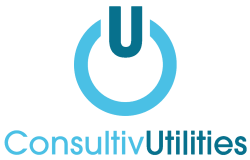Managing your business costs is crucial to maintaining profitability and sustainability. With your energy bills being a significant cost that can often fluctuate in today’s volatile market, it’s essential to consider your options carefully when securing energy contracts for your business.
Navigating energy trends
Before delving into contract options, it’s essential to understand the current energy market landscape. Energy prices can be subject to various factors, including geopolitical tensions, supply and demand dynamics, regulatory changes, and environmental policies.
For businesses, these fluctuations can pose challenges in budgeting and forecasting expenses.
Fixed rate contract vs. Flexible contract: Understanding the difference
When considering your business energy contracts, the two primary options are fixed-rate contracts and flexible contracts. Understanding the difference is crucial for making informed decisions about your business’s energy procurement strategy.
Fixed rate contract: With a fixed-rate contract, you lock in a set price for your energy supply over a predetermined period, typically ranging from one to three years. Regardless of market fluctuations, your energy rate remains consistent throughout the contract term. This provides stability and predictability for your energy costs. This option is preferred by businesses seeking budget certainty and protection against price spikes.
Flexible contract: A flexible contract fluctuates in line with market conditions. Your energy costs may vary from month to month based on factors such as wholesale energy prices, demand-supply dynamics, and regulatory changes. While variable rates offer the potential for savings during periods of low market prices, and while they can expose businesses to the risk of price increases during times of volatility, these risks can be managed through prudent risk management.
Pass-through contract: Alternatively, pass-through contract allows you to fix commodity price while choosing which non-commodity charges are passed onto you. Instead of adding a markup, the supplier bills you at the exact rate they are charged for non-commodity costs. By opting for a pass-through contract, businesses take the risk of non-commodity charges increasing.
How long should I fix my business energy contract?
The length of time you choose to lock in your energy prices should depend on the current energy market conditions and the projected market over the next couple of years, and your own businesses need for certainty over a given period.
For instance, if wholesale prices are low but expected to rise, your company might consider opting for a longer contract to secure lower rates for an extended period.
Why compare energy prices?
Given the importance of energy costs to your business, comparing energy prices, and exploring different contract options is essential. Here’s why:
Cost savings: By comparing energy prices from multiple suppliers, you can identify competitive offers and potentially secure lower rates.
Contract flexibility: Understanding the available contract options allows you to tailor your energy buying strategy to suit your business’s needs and risk tolerance. Whether you prioritise budget stability or flexibility – there’s a contract type that aligns with your preferences.
Risk management: Assessing the energy market and comparing prices enables you to mitigate the risk of unexpected cost increases. By choosing the right contract duration and pricing structure, you can safeguard your business against market volatility and budget more effectively.
In conclusion, the question of how long to fix your business energy ultimately depends on:
- Your specific circumstances;
- Risk tolerance;
- Market outlook.
While fixed-rate contracts offer stability and predictability, variable rate tariffs provide flexibility and potential savings. Regularly evaluating energy prices and contract options empowers you to make informed decisions that align with your business objectives and financial goals. By staying informed and proactive, you can effectively manage your business’s energy costs and drive long-term success.
Categories:
